
How Much Does a Pebble Pool Cost?
Cost and Pricing | Concrete Pool Information
Pebble pools (also known as aggregate pools) are extremely popular among concrete pool owners thanks to their diverse range of colors and materials.
If you are new to the different pool surfaces, a pebble pool is a concrete pool with a stone, quartz, or glass pebble finish. The pebbles can be exposed (a bit bumpy but looks nice) or ground down for a smoother surface, as shown below.
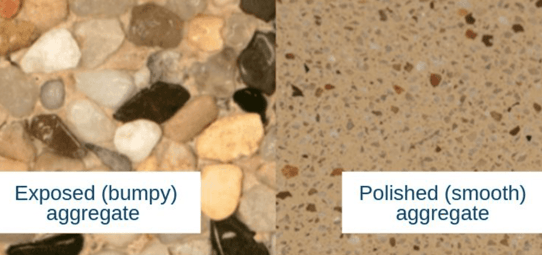
If you like the way a concrete pool pebble finish looks, you might have questions like
How much does a pebble pool finish cost?
Is a pebble pool finish better than plaster?
What types of pebbles can I use in my pool?
We manufacture fiberglass pools, but we also create videos and articles about all inground pool types to educate pool shoppers worldwide. Over the years, we've gotten many questions about the costs, pros, and cons of pebble pools, so in this article, we'll break down pebble pool pricing and answer some frequently asked questions to help you decide if a pebble pool surface is right for your swimming pool.
Pebble Pool Surface Cost
Overall, you might expect your pebble pool surface to cost around $8,000 to $15,000 depending on the type of pebble, the size of the pool, and pricing for materials and labor in your area.
Generally, glass pool pebble is the most expensive material to use, while quartz aggregate is often the least expensive. Pebble pool finishes made from natural, polished pebbles are priced somewhere between glass and quartz.
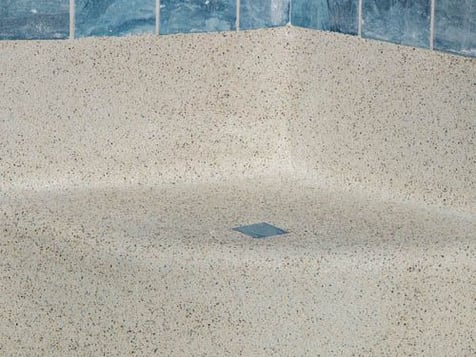
Polished pebble pool surface
How much more does a pebble pool cost than a plaster pool?
If you decide to surface your gunite pool with a pebble option, you can expect to pay $5,000 to $10,000 more than you might for traditional plaster, depending on the pool's materials, region, and size.
(Concrete pools with plaster surfaces typically cost a minimum of $50,000 to $100,000 or more.)
However, you might pay less on long-term expenses with a pebble pool than you would with a plaster pool. Let's compare the two in more detail.
Pebble Pool Finish vs. Plaster Pool Finish
Most pool owners and builders agree that a plaster pool finish is not as durable as a pebble pool finish. A pebble pool surface can last between 10 and 20 years if it's well taken care of, while a quartz aggregate or glass pebble pool surface might last 7 to 12 years.
Plaster, on the other hand, may last you 5 to 10 years before it needs to be resurfaced. You can expect replastering your pool to cost another $5,000 to $10,000 plus labor and materials, so you might end up spending twice as much on plaster over time than you would on a pebble pool surface.
Pebble surfaces tend to look nicer than plaster, especially if you lean towards a natural aesthetic, but they can be bumpy or almost as rough as plaster. Exposed aggregate might look fantastic on a beach entry design, for example, but it wouldn't be comfortable to walk or sit on.
Pebble vs. Quartz vs. Glass
Quartz vs. Pebble Pool Finish
A quartz aggregate pool finish might have a mix of quartz, cement, and other types of stone. Polished quartz pool finishes typically have a shimmery effect and look similar to a granite countertop.
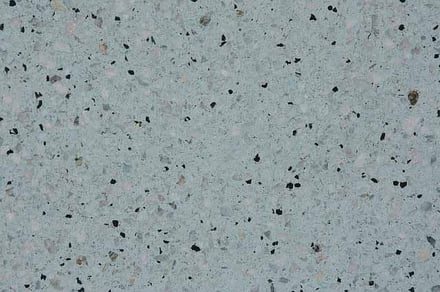
Quartz aggregate may not last as long as natural pebble (exposed or polished), but it is also cheaper and a little bit smoother to walk on. Pebble pool surfaces are offered in many different sizes, and both pebble and quartz surfaces are available in a variety of colors, including a range of greens, blues, sandstone, and grays.
Natural pebble is the best choice if you're going for a nature-based theme, like a biofilter pool or lagoon pool. Keeping the pebbles exposed will not only look natural, but it may also feel like stepping into a lake or creek bed (not exactly a plus in the comfort department, though).
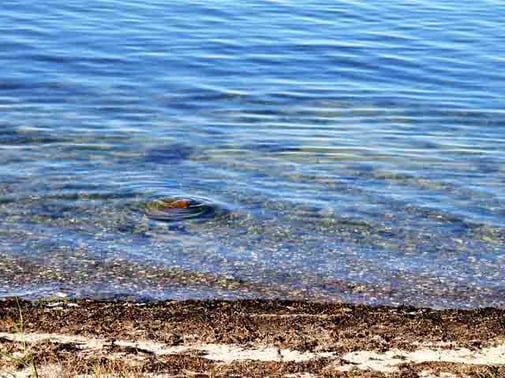
Glass vs. Pebble Pool Finish
Glass pebbles, or beads, may not last as long as traditional pool pebble, and they will likely cost more. Some people also report having problems with the color fading too quickly or beads coming loose when vacuuming the pool, so you might also expect to spend more on maintenance and repair for a glass bead surface in the long-run.
However, glass beads give the pool more shimmer and vibrance than natural pebbles do, which is one of the main reasons that pool owners request them so often.
Quartz vs. Glass Pebble Pool Finish
Quarts pool finishes are typically crushed into cement and polished so that the surface is smooth, while glass beads are usually exposed and bumpy.
Overall, you can expect a quartz pool finish to cost less than a glass pool finish, and you may have fewer maintenance problems with an aggregate quartz surface. Both are equal in walking comfort levels as glass beads tend to be smooth and small, unlike natural pebbles.
How much does a pebble pool cost to maintain?
Generally, a pebble pool will cost less to maintain than a traditional plaster pool because it won't need to be resurfaced as often. Plaster pool finishes also need regular acid washes, while pebble pools typically don't need to be acid washed.
You might also spend less on chemicals and cleaning because pebble surfaces are more stain and algae-resistant than plaster.
So, while you might spend around $27,000 on a plaster pool over a ten year period, you will likely spend closer to $17,000 or $20,000 over a ten year period for a concrete pool with a pebble surface.
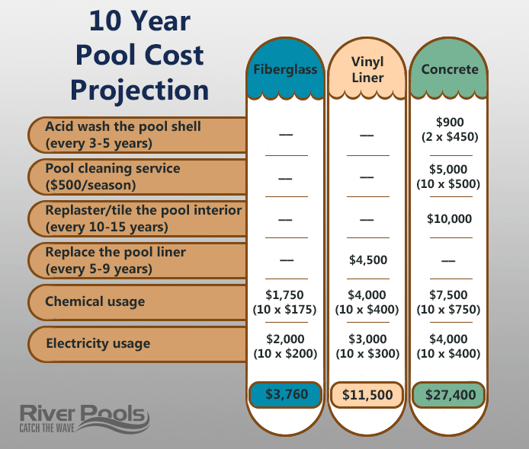
At River Pools, we manufacture state of the art fiberglass pools for customers across North America. Fiberglass pools have a smooth gelcoat surface that can last 20 years or more without needing to be refinished.
Gelcoats are usually shimmery and vibrant and come in a wide range of colors, much like pebble pool surfaces. They are incredibly durable and comfortable to walk on, and maintenance for a fiberglass pool is much cheaper than any other inground pool.
If you want to explore your fiberglass pool options, you can browse our catalog of models, read about the basics of fiberglass pools, or request custom pricing on a fiberglass pool today. In the meantime, feel free to try out our fiberglass pool cost calculator below for an instant estimate:

Want to see about how much a fiberglass pool might cost with all your favorite accessories?
Use our Design and Price Tool to walk through your options and approximate price!
Up Next:
Are Salt Water Systems Bad for Concrete Pools?
Exposed Aggregate on a Pool: Pros, Cons, & Reviews
Pool Construction: Comparing Concrete, Vinyl Liner, and Fiberglass Installations





